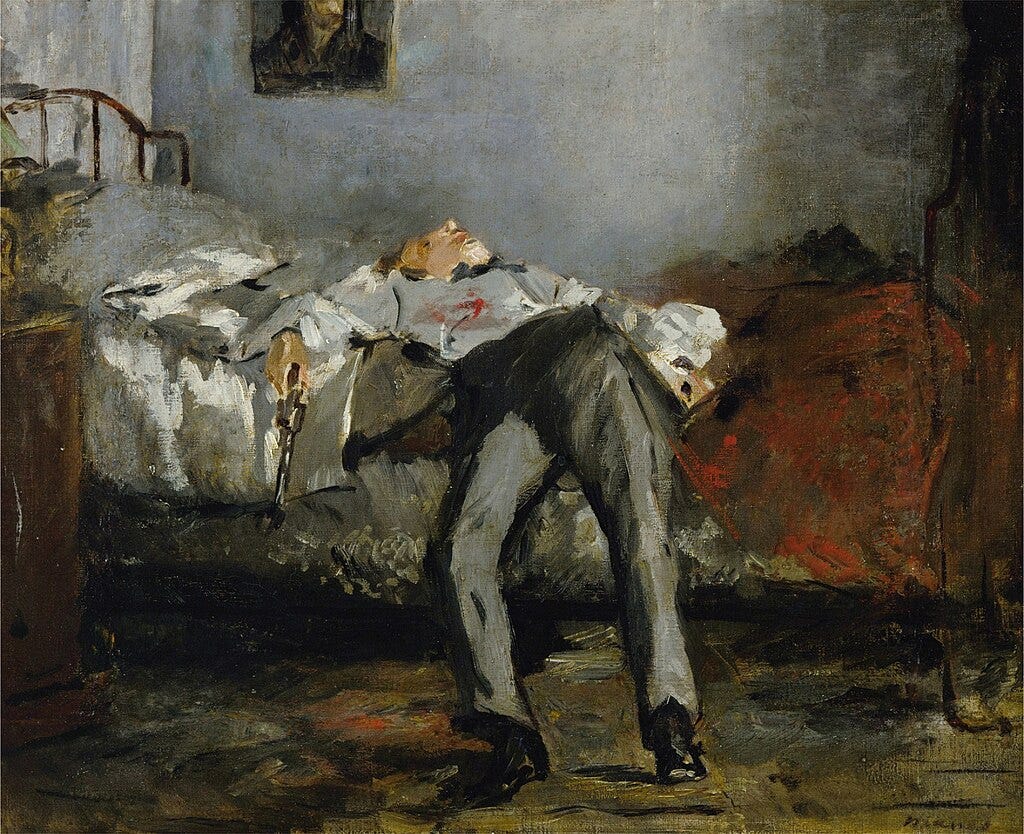The Banality of Jeffrey Epstein
Reading, Watching 07.13.25
This is a regular feature for paid subscribers wherein I write a little bit about what I’ve been reading and/or watching.
If you are not yet a paid subscriber but regularly read, enjoy, or share Unpopular Front, please consider signing up. This newsletter is completely reader-supported and represents my primary source of income. At 5 dollars a month, it’s less than most things at Starbucks. And it’s still less than the “recession special” at Gray’s Papaya — $7.50 for two hot dogs and a drink.
You can also buy When the Clock Broke, now in paperback, available wherever books are sold. If you are in the UK, it is also available there.
Sometimes I feel like the only person in the world who thinks it’s more likely that Jeffrey Epstein actually killed himself. Before you bring out your favorite fact to suggest a vast conspiracy, consider for a moment: Here is a person whose life was dedicated to vice and luxury, who had no higher spiritual values, no hope of continuing in his shallow and thoughtless existence, and was forced for the first time, alone in a cell, to reflect on a misspent and destructive life. Even if you don’t want to credit him with the kind of inner life that would feel profound guilt and remorse, he must at least have felt intense shame. He was once a vain and self-important man, which demonstrates a fragile pride. I would guess that Epstein never in his whole life considered what he was doing to be truly evil, that he considered it to be a peccadillo, essentially some victimless naughtiness. Now he was forced to confront it all, without the possibility of friends and associates that would make him feel like a human being again. Solitude under such conditions would become unbearable. It makes me think of Aristotle’s Nicomachean Ethics. In Book IX, the philosopher considers the nature of friendship. He describes goodness as a kind of “friendship with oneself” that allows for peaceful solitude:
…a [good] person wishes to spend time with himself, since he finds it pleasant to do so. For his memories of his past actions delight him and his hopes for the future are good, and so both are pleasant. And he has in his intellect a wealth of subjects for contemplation. And he, more than others, shares his own griefs and joys with himself, since the same thing is always painful, the same thing pleasant, and not one thing at one time, another at another. This, one might say, is because he has nothing to regret.
Bad people don’t have this capacity for self-friendship and find solitude painful, because they have to be alone with an unsettled soul, full of regrets:
…even bad people scarcely have them, since they are in internal conflict, and have an appetite for one thing but wish for another; they are like incontinent people, since they choose harmful pleasures in preference to what seems good to them. There are others whose cowardice or laziness makes them shrink from doing what they believe to be best for themselves. And those who have committed many dreadful crimes and are despised for their wickedness run away from their lives and destroy themselves. [This is often translated as “commit suicide.” -J.G.] And wicked people seek others with whom to spend their days, and they avoid themselves. For when they are by themselves they remember many disturbing actions and foresee others like them, whereas when they are with others they forget. Because they have no qualities worthy of love, they feel no relation of friendship to themselves. Nor, therefore, do people like this share their joys and griefs with themselves. For their soul is in a state of civil strife, and one element in it, because of its wickedness, grieves in abstaining from certain things, while the other element is pleased; the one draws them this way, the other that, as if tearing them apart. If a person cannot be pained and pleased at the same time, nevertheless after a short time he is pained because he was pleased, and he wishes these things had not become pleasant for him; for bad people are full of regret.
Epstein would never again have the company of cronies who could help him forget or minimize his crimes. He could no longer avoid himself. Instead, in front of him, he had only the fear of punishment and a lifetime of harassment and injury from fellow inmates. And one can easily imagine this “state of civil strife:” shame over his actions, but an intense—and now permanently frustrated—desire to continue them. Aristotle characterizes the truly bad person, as opposed to the merely intemperate or incontinent one, by the quality of pleonexia, an insatiable desire, a kind of all-consuming greed. That would definitely fit Epstein. Aristotle specifically says those “who have committed many dreadful crimes” will often kill themselves.


